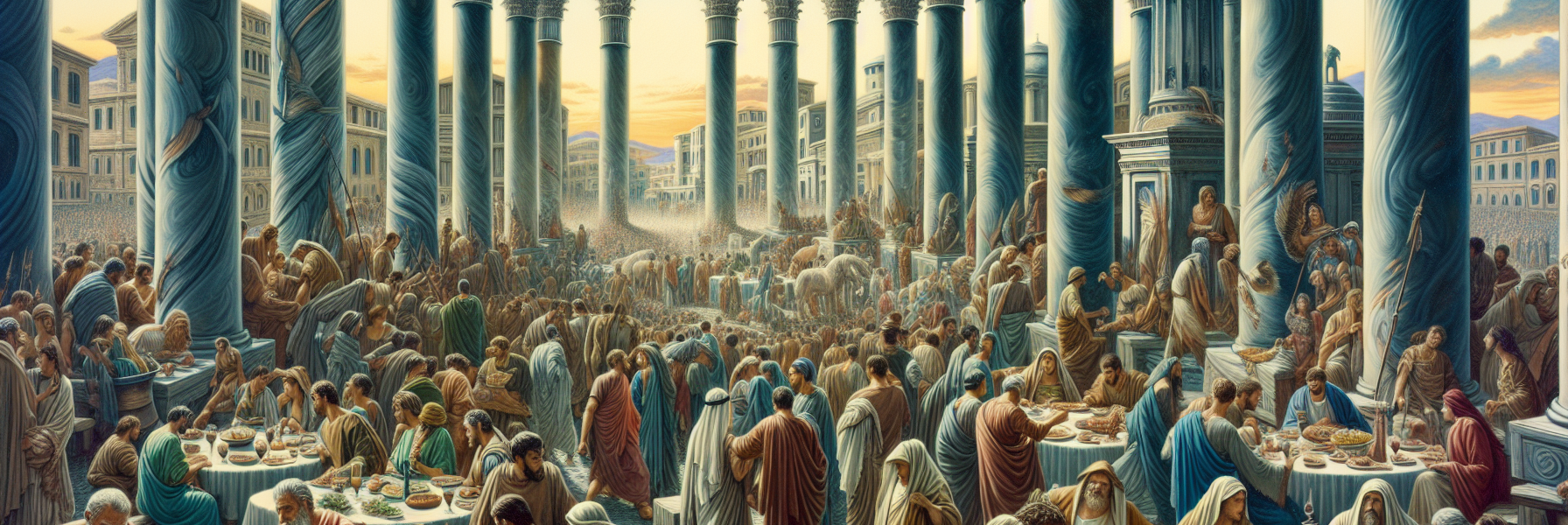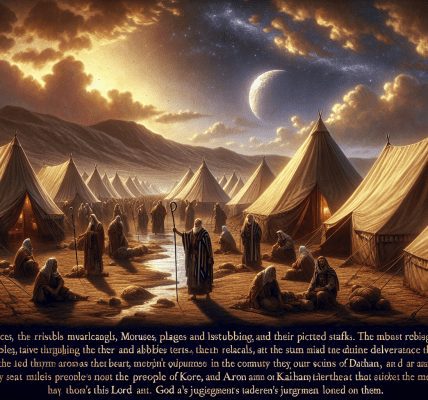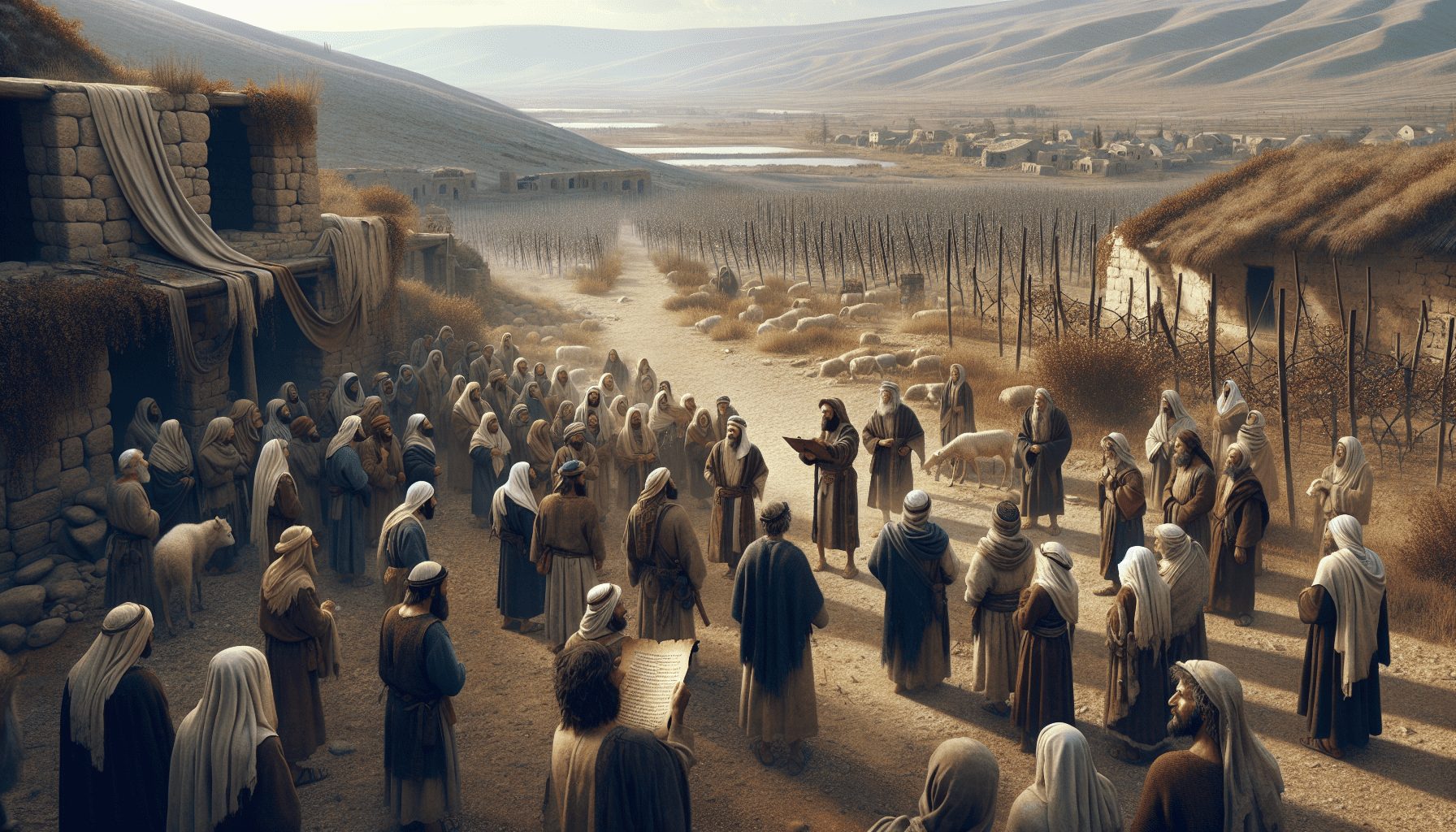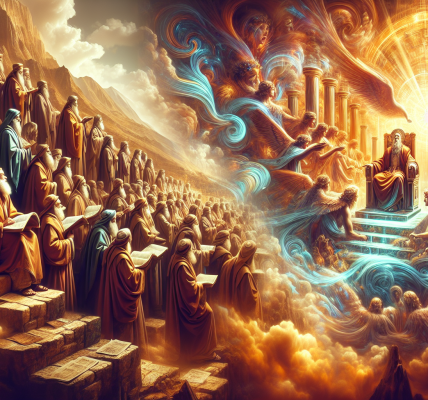**The Banquet of Grace**
In the bustling city of Rome, where marble columns gleamed under the Mediterranean sun and the streets hummed with merchants, soldiers, and philosophers, a quiet tension simmered among the followers of Christ. The church was a tapestry of Jews and Gentiles, former Pharisees and pagan converts, slaves and freedmen—all united in faith, yet divided in practice.
Among them was **Marcus**, a Gentile believer who had once worshipped at the altars of Roman gods but now rejoiced in the freedom of Christ. To him, all foods were clean, a gift from God to be received with thanksgiving. He dined without hesitation on meat sold in the marketplace, though he knew some of it had once been offered to idols. His conscience was clear, for he knew idols were nothing.
Then there was **Levi**, a Jewish convert who had grown up under the strict observance of the Law. Though he now believed in Jesus as the Messiah, old habits ran deep. He abstained from meat altogether, fearing it might have been sacrificed to false gods. He also kept certain days as holy, not out of obligation but out of reverence.
One evening, the church gathered for a shared meal in the home of **Priscilla and Aquila**, their courtyard lit by flickering oil lamps. The aroma of roasted lamb and fresh bread filled the air as believers reclined around low tables. Marcus, filled with joy, took a portion of meat and blessed God for it. But Levi, seated nearby, ate only vegetables, his face troubled.
A murmur spread among the guests. Some whispered that Marcus was careless in his faith, while others scoffed at Levi’s scruples, calling him weak. The warmth of fellowship cooled into judgment.
Then **Elder Silas**, a man seasoned in wisdom, stood and raised his hands for silence. “Brothers and sisters,” he said, his voice steady, “why do you pass judgment on one another? Whether we eat or abstain, whether we honor one day above another or treat all days alike, we do so unto the Lord. For none of us lives to himself, and none dies to himself. If we live, we live to the Lord, and if we die, we die to the Lord. So then, whether we live or die, we are the Lord’s.”
The room grew still. Marcus lowered his knife, his heart pierced by conviction. Levi, too, bowed his head, realizing his own pride in looking down on those who did not share his scruples.
Silas continued, “Let us not destroy the work of God for the sake of food. All things are indeed clean, but it is wrong to cause another to stumble by what we eat. The kingdom of God is not a matter of eating and drinking but of righteousness, peace, and joy in the Holy Spirit. Whoever serves Christ in this way is pleasing to God and approved by men.”
Marcus turned to Levi, his voice gentle. “Brother, I will not let my freedom wound your conscience. If my eating grieves you, I will abstain—not because I must, but because I love you.”
Levi’s eyes softened. “And I will not condemn you for what God has granted you. For we both serve the same Lord.”
That night, the banquet became a feast of grace. Some ate meat, others did not, but all shared in the bread of unity. For they remembered the words of the Apostle: *”So then, let us pursue what makes for peace and for mutual upbuilding.”*
And so, in the heart of Rome, the church learned that love was greater than personal liberty, and that Christ was Lord of all—both the strong and the weak.




